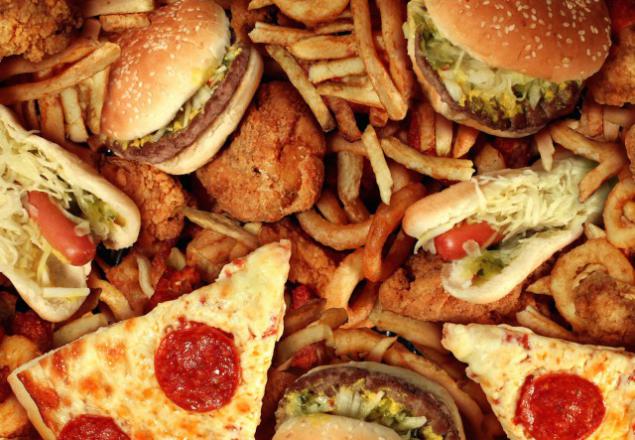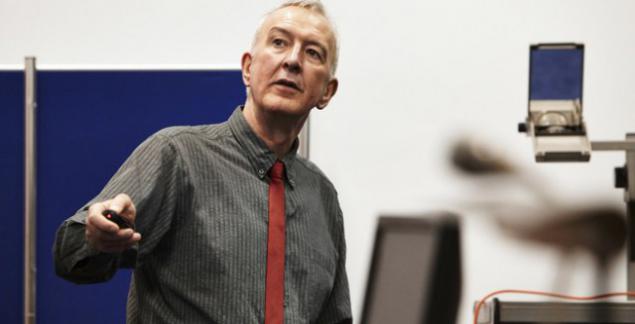How to lose the power of thought

People sitting on a diet, often feel as if he really battling with their own stomachs, but psychologists, such as Robinson, believe that hunger is formed not so much in our domestic, but in the head. And if you try to remember the last meal eaten, you can easily transfer the famine.
«To date, many studies show that a number of subtle psychological factors can affect how much you eat, but people still are not aware of this influence. But all this is very important, given the increasing scale of global problems such as obesity ».
Eric Robinson
blockquote> If this is true, how does it work?
The reason for the above conclusions, in particular, have given people a very bad memory, suffering from a disorder known as "anterograde amnesia". You can meet with these people for a long time, extensively to communicate with them, but after 20 minutes they will not have the slightest idea of who you are. Their memory is only enough for this short period of time.
Forgotten edaTo same applies to the food eaten by these people. In one of the key research involved a former musician and a former banker. Both received anterograde amnesia after herpes infection struck the temporal lobes of the brain. That these shares are responsible for storing new memories.
Initially, they were given a plate of sandwiches and cakes that they ate, freeing plate. Plate taken away. And 15 minutes later it was returned with a new portion, which was even more old.
Healthy people in this situation, as a rule, already feel full, and can not eat more, but patients with amnesia ate everything without problems again.
"They forget the last time I ate so again if they offer eat, they will eat again," - says Glyn Humphreys from the University of Oxford, who conducted the study.

But in spite of a bad memory, a pair of subjects suffering from amnesia, forgetting about the recent reception of food is not completely.
In another part of the experiment they were allowed to try out a wide range of dishes - rice pudding, or chocolate chips. Then they were asked to wait a little longer, and then re-offered dish.
The majority of people committed to a variety of flavoring, so during the second eating healthy people change their preferences, and try another dish. This phenomenon is called "sensory specific satiety».
As with healthy people, suffering from amnesia, the subjects did not feel a particular craving for dishes selected for the first time, although he claims that I do not remember what they have eaten.
They changed preferences suggest that they do not have problems with sensory processing of food. They simply can not form a clear, conscious memory of food. Even without these memories are still feel hunger, despite the fact that their stomachs were full.
It can be assumed that a healthy brain is smart enough to pay attention to what we eat, but recent studies show that the brain easily fooled.
Consider the ingenious experiment Jeff Branstroma from the University of Bristol.
His subjects believed that their task is very simple: eat a bowl of soup. Do not warn participants Branstrom connected to a bowl of soup a tube hidden under the table. These tubes are allowed to add a little soup in bowls, with the subjects did not notice.
Branstrom found that the desire to snack arises the subjects, almost entirely dependent on the appearance of the bowl on the table (no matter big or small), and almost does not depend on the actual amount of soup they ate.
All of this is able to shake the prevailing view that the feeling of hunger is determined solely by the balance of hormones in the gut.
«I'm not saying that this kind of signals is not important, but the function of knowledge in these signals expressed enough».
Jeff Branstrom
blockquote> In the meantime, in certain circumstances, this feature may be important because it has consequences, manifested in our hectic modern life.
In most offices the so-called "working lunch" has become commonplace, and during the evening meal, many people look or television, or in their smart phones and laptops.
All these distractions can affect your memories of what you ate.
Branstrom, for example, have asked for the test with one hand while the other hand they are playing patience. Because of this distraction test later struggled to recall what they ate, and at the same time absorb the biscuits in large quantities.
Touch forsazhImenno for the above reason, the researchers are now looking for ways to improve the sensory memory associated with food. Robinson recently checked whether the recording played during meals, help a group of women with overweight eat a few sandwiches with ham more consciously. The instructions were simple: a three-minute video in one group of women were asked to focus on the sensory experiences obtained in the course of food - the appearance of the food on its taste and smell. Second, the control group, only eat their sandwiches under the rhythmic cuckoo.
As suggested Robinson, women who were asked to concentrate on the sensations of food, and later - to describe these sensations again wanted to have only 3 hours, and compared with the control group consumed 30% fewer calories.
This approach will not work for everybody, but Robinson has other ideas, alternative techniques.
For example, in another experiment, people were asked to recall accurately what they ate earlier in the day, and it turned out it prevents further overeating.
Imagination can lend you a helping hand: the team of Pennsylvania found that visualization of your desires, presenting them in detail, it seems, can fool your mind can make him believe that you have already eaten. What leads to a decrease in desire and a decrease of actual consumption.
Currently, Robinson is working on a mobile application that will force users to remember eaten the day before meals.
Despite all these efforts, Robinson believes that the need to hold as many clinical trials to verify whether all of these tricks with memory effective in their daily fight against obesity. And he is concerned that people may find it too tedious procedure proposed, especially if they like to be distracted while eating.
But there are promising moment - "attentive food" does not seem to reduce the pleasure of subjects. On the contrary, they seemed to enjoy was dissolved in a sea of aromas and flavors.
«It's hard to imagine, but to savor the food - can actually be very good».
blockquote> If you find that it works, then these tricks with memory can offer us something very rare: weight loss program that actually multiplies the pleasure of eating. And of course, this could be one of the most delicious solutions in the fight against obesity.
via factroom.ru

























